Elections 2021: Mentors stopping youth crime and giving hope in West Midlands
- Published
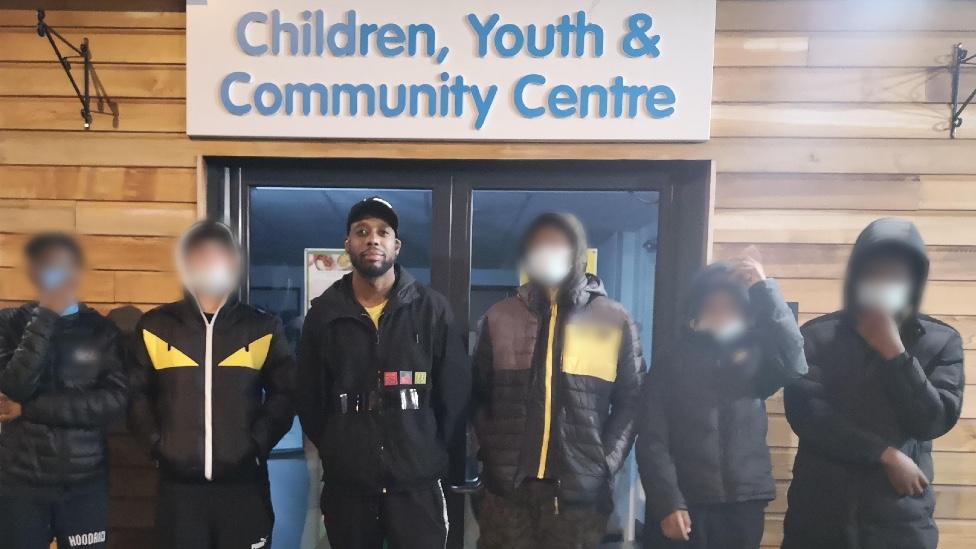
Tanayah Sam's experience of gang life made him want to help young people in Birmingham
In some areas of the UK, the coronavirus lockdown had little impact on street violence. As voters head to the polls this week to appoint a new police and crime commissioner, three people tell how they are helping to stop crime in their neighbourhoods.
The fatal stabbing of a young father outside a shopping centre in Smethwick, just outside Birmingham, four weeks into the first UK lockdown was enough for Tanayah Shah to realise Covid-19 could not stop his youth work.
Karl Gallagher, 31, from Smethwick, died from a single stab wound to the chest inflicted by Tyrell Harris.
Footage taken by an onlooker of the killing went viral on social media in the hours after the attack.
"I knew full well and could see young people were still hitting the streets and getting involved in crime," said Tanayah.
"I thought, 'Nah, I cannot stay indoors no more'."
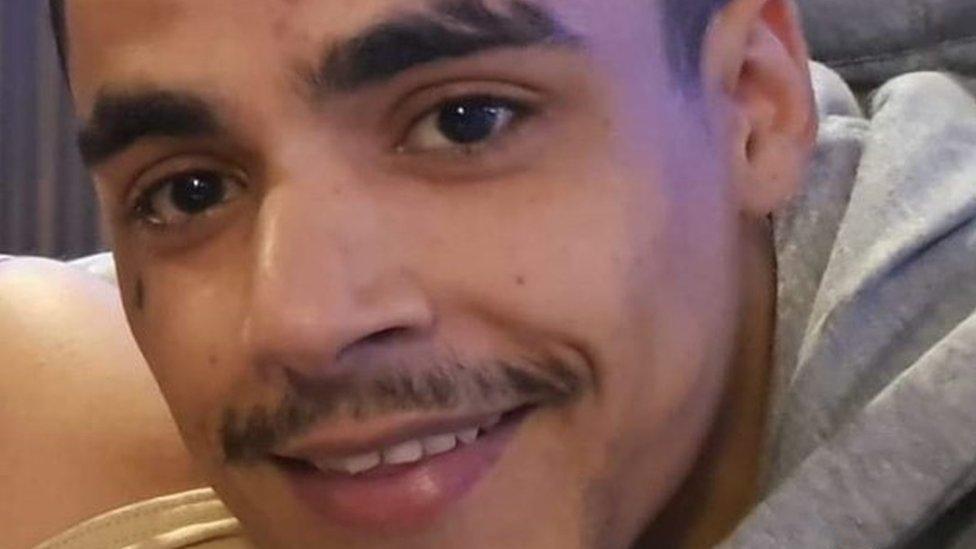
Karl Gallagher died on 26 April after being stabbed at a shopping centre
In the 1990s, Tanayah was himself a member of a street gang, but after a stint in prison decided to turn his life around.
He became a mentor to other inmates and on release decided to concentrate on stopping other young people following in his footsteps.
In 2019 he set up TSA Projects, a not-for-profit organisation working with young people through media and sport, helping them realise their potential, even if they might not realise it themselves, by creating opportunities. Not just in Birmingham, but across the UK.
When lockdown happened, Tanayah got hold of bikes and scooters so he could take his youth work outside within Covid-19 restrictions.
"We tried sitting on Zoom and talking. I don't believe it works," he said.
"Those young people who aren't engaging on Zoom, those are the ones who are going to get up to no good. They are the ones I want to reach."

Tanayah and the TSA Projects team adapted to lockdown restrictions and worked in smaller groups to continue their work
The past year has brought its own challenges, including financial ones. Tanayah's team successfully tapped into funds from The National Lottery and the West Midlands Police and Crime Commissioner's winter contingency fund to keep it ticking over.
"It enabled us to be able to put mentoring on, to be able to put the studio on, to be able to get bikes and a PlayStation 5 and keep the place running for those vulnerable young people.
"Unfortunately, one of our young people has been arrested on [suspicion of] attempted murder. There are one or two who we couldn't help, they chose a different path.
"Some of them come from horrid backgrounds. In a sense, they didn't stand a chance."
Among those helped is Dre, who has discovered a hidden talent for music.
"It made me realise that in life I needed a sense of responsibility," he said of his involvement with TSA.
"Before, I was antisocial, I was only really going out to do bad things. So when I did the music thing, it just came naturally and I thought, 'I should be there'."
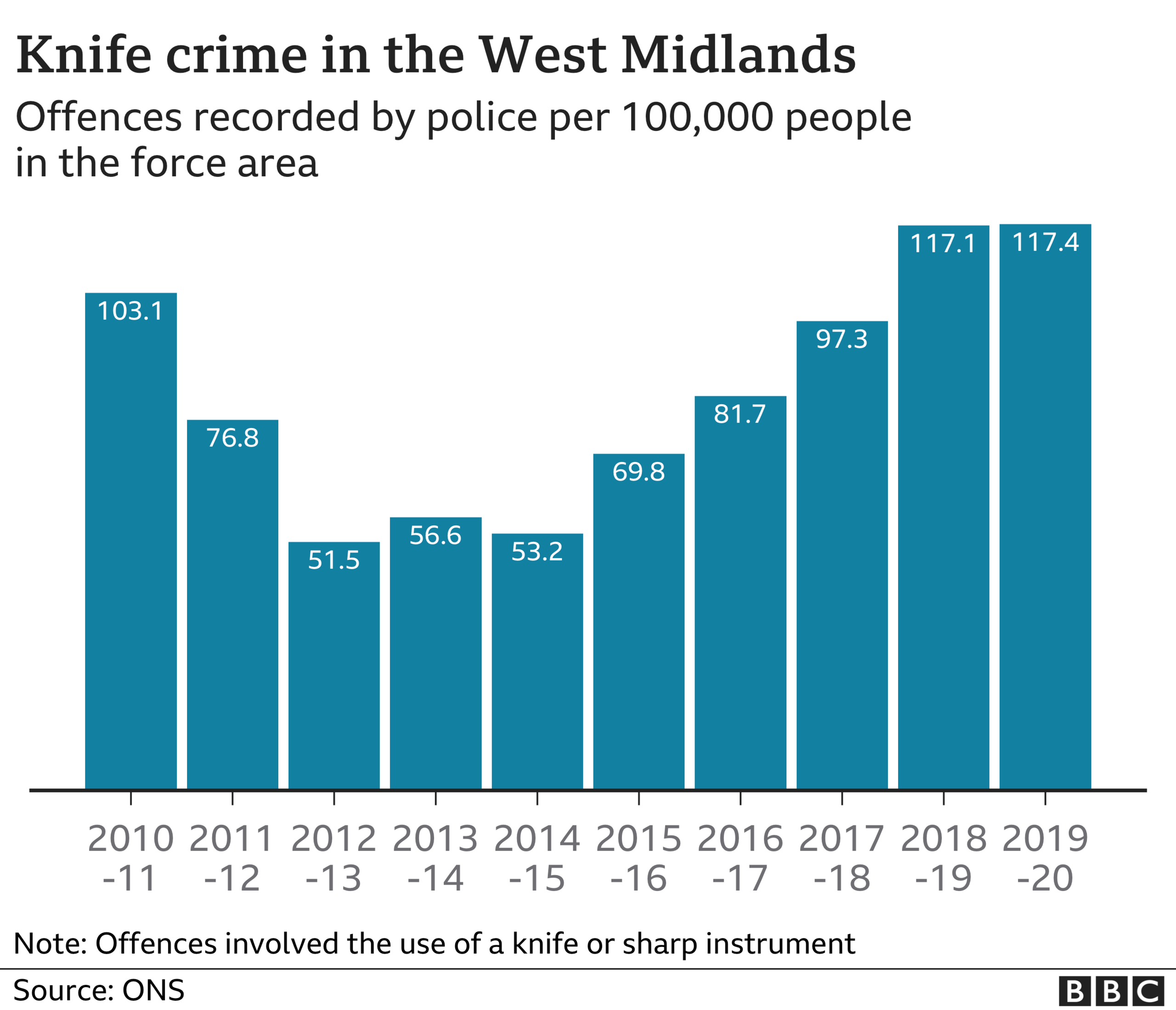
The 19-year-old is even helping other young people, to "steer them on to the right path and navigate them away from violence".
The music studio is a place for them to express their feelings and "articulate in a more positive way and express their trauma", said Tanayah.
"That just makes me happy doing what we're doing and seeing Dre doing what he's doing, because that's worthwhile."
Cutting violent crime has been a priority for many years for West Midlands Police. Between March 2020 and March 2021 the force recorded 115,477 crimes, external considered "violence against a person", which includes attempted murder and assault.
In the previous 12 months, the West Midlands police and crime commissioner spent more than £6m funding crime prevention schemes.

'We don't judge'
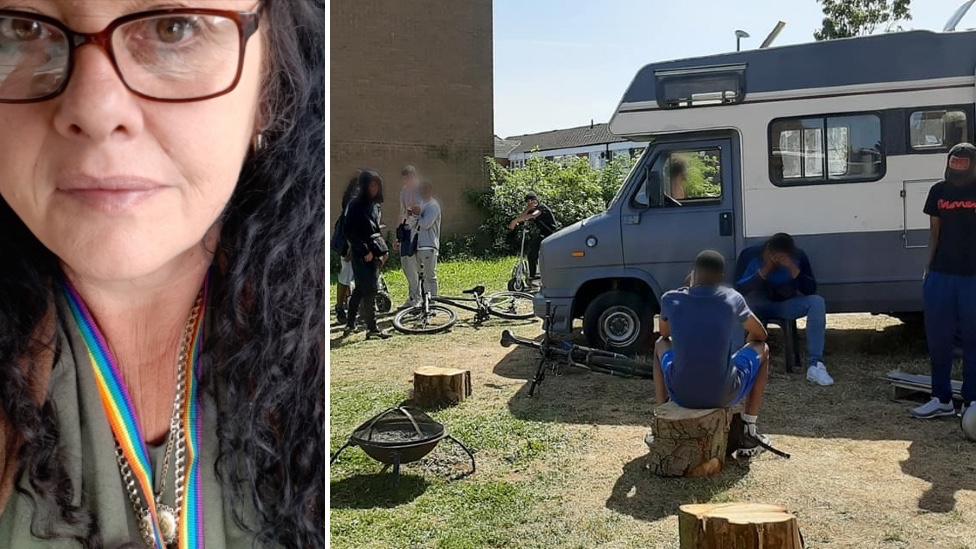
Debi has got funding to transform two caravans into useable spaces for young people in Smith's Wood
Most of the day a group of young people gather outside Debi Ramsey's house on the Smith's Wood estate in north Solihull, perhaps appearing like they might be up to no good.
In reality they are "young marginalised lads" with nowhere else to go, said Debi, who has lived there for 25 years.
Over the past year she has set up a youth organisation, although unofficially it's been running in her own garden for years. With a caravan operating as a music studio and hangout, it's no wonder everyone flocks to her.
"Nobody else was doing it," she said, when asked what her motivation was.
"Smith's Wood is an area where people struggle, young people have been disengaged for the past 15-20 years when youth services started closing - youth clubs and activities," she said.
"I started noticing there really wasn't a lot of intervention or support until the police became involved."
Her group is called SASS - Smithswood Access to Services and Support.
Debi helps families with education, health and care (EHC) plans and accessing services, as well as talking and most importantly listening to some of the young people that come to her.
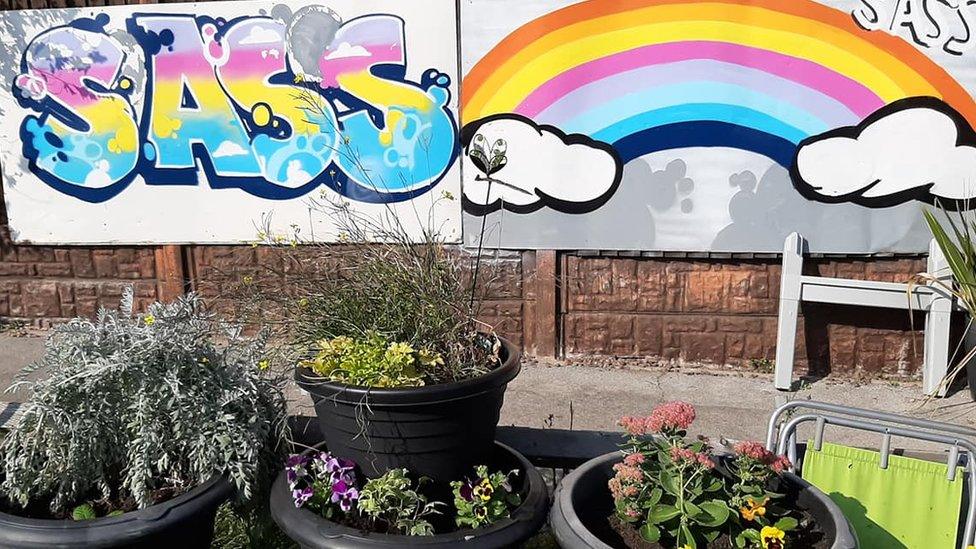
Debi helps young people create and improve green spaces in Smith's Wood
"This group of young people are unlikely to walk into an advice centre because the initial questions, like, 'what's your address? have you got any ID'? And, 'what have you been doing for the past 12 months'? Often they don't often have answers.
"We don't judge. Rather than no choices or hope we try to give them some hope and reason for engaging with us.
"We have five young people on mentoring courses, two are doing [driving] theory tests and then there are those who are using our media and music studio projects."
In the past year Debi has gained funding from the Violence Reduction Unit and the West Midlands police and crime commissioner to fund its music and media studios, as well as the challenge of trying to build a bridge of trust between officers and young people.
'An opportunity'
Aaron, 24, turns to Debi "to get help with anything to do with life". He said: "The music studio is a place where I can go to express myself. I don't have to talk. I just get it out."
Debi's passion lies in not just supporting these young people but changing people's perceptions - sharing photos on social media of some of the teenagers litter picking, helping elderly people in the local area and creating green spaces.
"Debi has helped me get a job and have a mentor. I wish people could just see how much she does," said Aaron. "She treats everyone the same way and with the same respect whoever they are. She gives us an opportunity that we don't have."

'Now we have more of a voice'
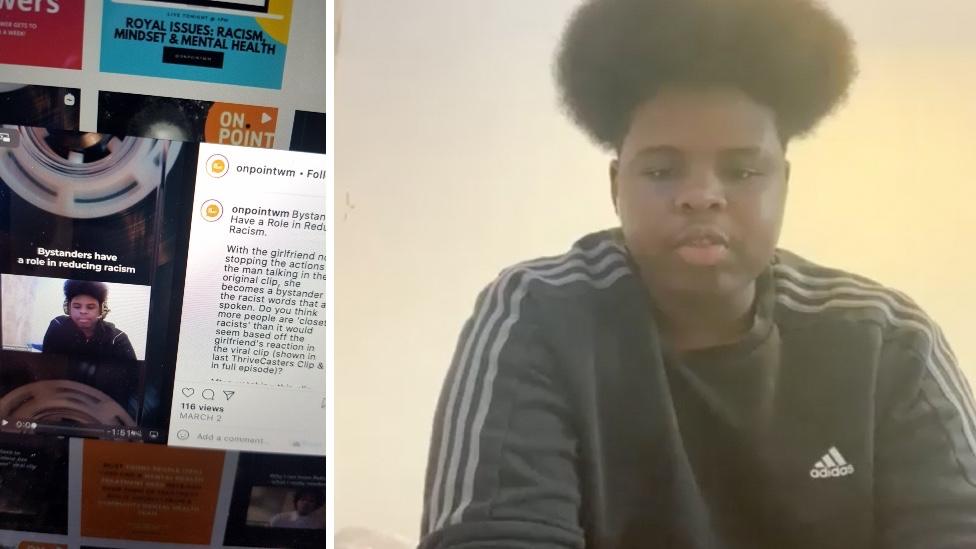
Jed says being part of On Point WM has given him the opportunity to meet new people and discuss issues he wouldn't ordinarily think about
Women's safety, racism and dealing with grief are some of the discussions that young people have shared online over the past few months on the online platform On Point WM.
Jenna Varndell runs the self-funded service for young people in the West Midlands and has based the idea around positive stories, as told by them.
Jenna lives in Handsworth and grew up around violence and domestic abuse. "We've really got to adjust the way we think, in order to really make our communities more cohesive," she said.
"If you can start at an early age and educate young people, it's a really, really good start for their future. How do we make them care about their communities in the future?"
On Point WM initially had funding from the West Midlands police and crime commissioner, which has now ended, and is now self-funded.
For Jed, 16, and in his final year at school, it's been a vital part of his life. It's been a place to meet new people and "give him a voice" on subjects he'd not considered or thought about before.
"It gives us an opportunity to express how we feel, whether it is good or bad," he said.
"I feel that now we have more of a voice, because everything is spoken about by adults. We don't really hear anything from young people, these days."

ENGLAND'S ELECTIONS: THE BASICS
What's happening? On 6 May, people across England will vote for new councillors, mayors and police and crime commissioners. Register to vote here, external.
Why does it matter? When parties win control of a council, they decide policies for your area which could affect services ranging from social care to rubbish collection. Find out more about what councils do.
Who can vote? Anyone who lives in England, is registered to vote and aged 18 or over on 6 May is eligible. Find your local election here.


